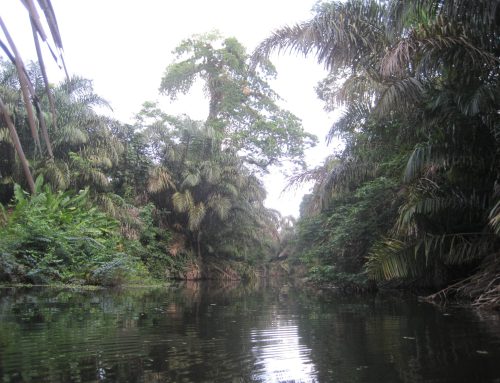By: Kayla Hamelin

A swell of support for ocean literacy in Canada over the past several years, including efforts led by CaNOE, contributed to the establishment of the Canadian Ocean Literacy Coalition (COLC) in 2018. In June (just last month!), COLC held a series of online engagement workshops to share and discuss the work conducted by the coalition so far. Given CaNOE’s role as one of the founding partners of the COLC, a variety of CaNOE members were invited to participate. It was an interesting and inspiring opportunity to raft up with a range of stakeholders in mapping a way forward for ocean literacy in Canada.
COLC has been hard at work! Made up of 5 regional teams (Pacific, Inuit Nunangat, Atlantic, St. Lawrence, and Inland Canada), the group set out to conduct research over the past year to “establish a baseline seascape” for the status of ocean literacy in Canada. This baseline will inform a national ocean literacy strategy and implementation plan moving forward. The research results so far have been summarized in five regional reports and 1 national report (with some bonus reporting on youth engagement and media analysis, available HERE.). During the meetings in June, separate interactive workshops were held for regional groups to review their respective reports, with a culminating workshop to review the national outcomes.
The bulk of COLC’s research surveys and interviews had targeted practitioners participating in 3 key areas: 1) advancing OCEAN KNOWLEDGE, 2) strengthening OCEAN VALUES, and 3) implementing OCEAN ACTIONS. These individuals represented diverse sectors ranging from cultural heritage and education to industry and research. The following key questions of interest were addressed:
1.What is the current understanding and state of ocean literacy in Canada?
A key finding from the COLC research, and a big topic of discussion during the workshops, was the term itself – “ocean literacy” just doesn’t seem to connect with Canadians, despite its broad recognition and use elsewhere in the world. It was deemed too “abstract” or “academic”, potentially problematic due to the deficit-based understanding of “literacy”, challenging to translate into other languages (notably French), and irrelevant to many Indigenous cultures. It has become clear that we must move beyond this term in order to create a diverse, inclusive ocean movement.
2. What are the current strengths and barriers of Ocean Literacy in Canada?
A clear asset for ocean literacy in Canada is the sheer extent of our coastline and aquatic resources. However, COLC findings suggest that in order to engage all Canadians from coast to coast to coast, focus must move beyond the marine environment to the concept of an “ocean continuum” – the important connections among the land, water, ocean, sea, and ice. Further, to avoid competing for space with other environmental narratives, the ocean continuum can fit into a broader ocean-water-climate-nature narrative, in order to synergize with other educational, advocacy, and action-based initiatives.
However, in order to shift this narrative to the front of mind for more Canadians, COLC identified enhanced and more equitable access to funding for ocean initiatives as an essential barrier to overcome. An additional barrier is the lack of engagement from industry stakeholders. However, linking keen industry investors with innovative ocean outreach programs in need of sustainable funds might represent an opportunity to enhance ocean literacy and innovation moving forward.
3. What are the key recommendations to advance Ocean Literacy in Canada?
A huge number of additional suggestions and ideas were brought up over the course of the national workshop discussions. We need a movement that is young, diverse, inclusive, and collaborative, centred on respect for traditional First Nations, Inuit, and Metis values and practices. We need national leadership that fosters regional implementation with local relevance, in alignment with international efforts. We need to be ready to harness unique opportunities and ongoing innovations. We need metrics to know that our ocean strategy is making a difference. And we need the space, time, and opportunity to reflect and make ongoing revisions and improvements.
It’s a tall order! But there are countless individuals from coast to coast to coast (including the team at CaNOE!) who are keen to grab a paddle and lend a hand in propelling this work forward. Let’s keep the national ocean conversation going.

Kayla Hamelin is a marine researcher and educator based in Halifax. She has been involved in CaNOE for several years as a board member (2017-2019) and communications volunteer. Kayla is currently pursuing a PhD in fisheries science and management at Dalhousie University. She is a passionate advocate for community-led stewardship and interdisciplinary approaches to environmental problem-solving.
Leave a Comment
Never Miss Out
Sign up to receive notifications whenever we post a new article and stay updated on all things ocean!
[email-subscribers-form id=”1″]






